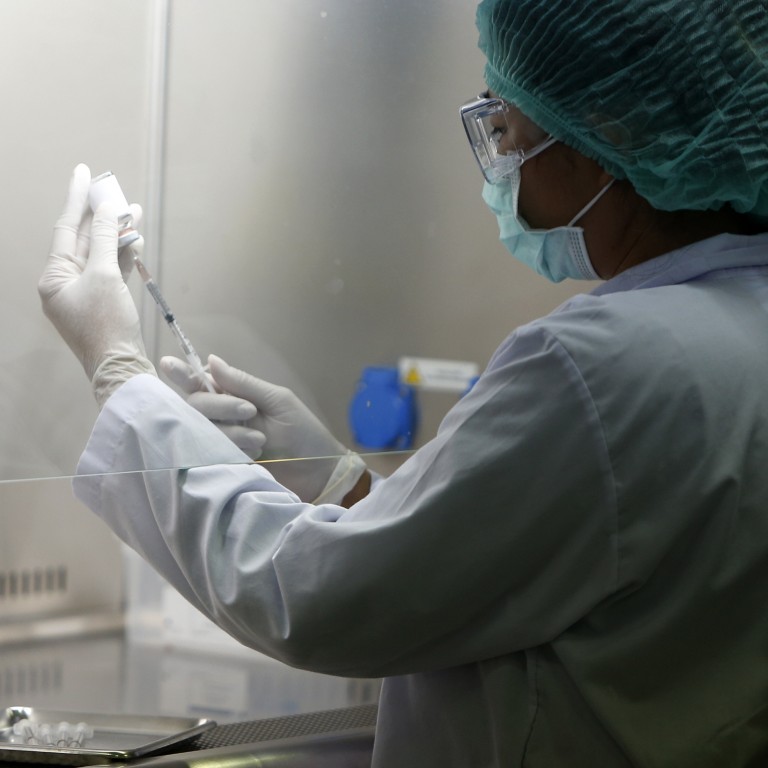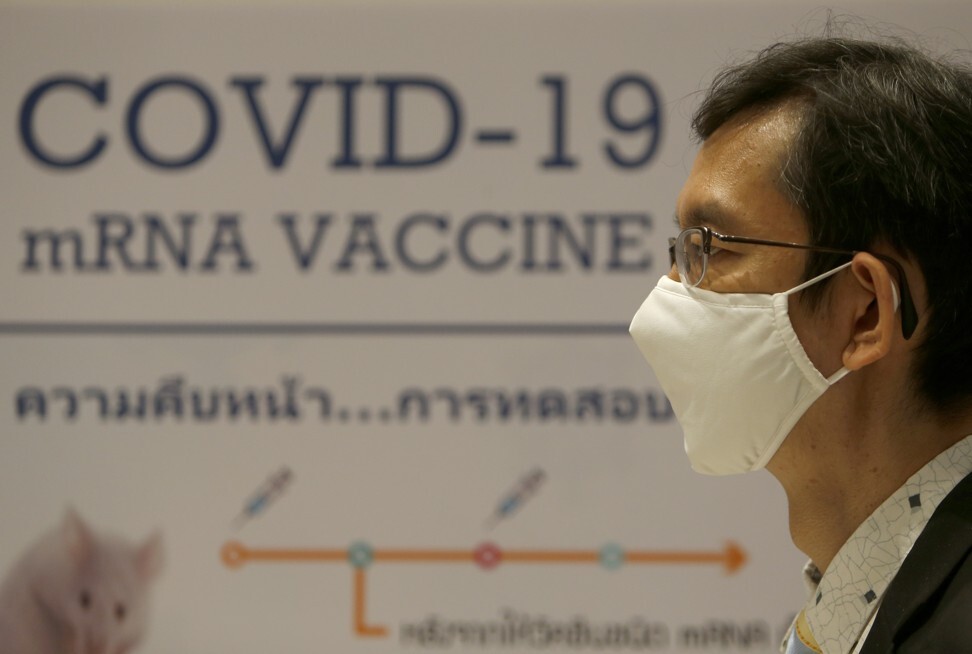
Human trials for Thai Covid-19 vaccine could start as early as October
- Scientist says Thailand is producing its own vaccine to avoid a repeat of the event when vaccines it ordered arrived only after the H1N1 outbreak ended
- If the Thai vaccine reaches clinical trials, it will be among the first done outside high-income countries to reach that stage
“We learned a very painful lesson during the H1N1 pandemic when the government signed agreements to buy vaccines, but we did not get any until the outbreak was gone,” said Kiat Ruxrungtham, head researcher at Chulalongkorn University’s Centre of Excellence in Vaccine Research and Development.
“The pandemic is teaching the whole world to do something different,” he said.
If we’re able to develop one of the effective vaccines and produce it locally, we’ll be able to cope with fighting against the pandemic on our own
Blood results after the first injection in monkeys showed all generated antibodies, according to Kiat’s study. The majority also developed neutralising antibodies, meaning the virus can be blocked from entering or damaging cells, he said.
The second dose was injected this week, and Kiat said he expects results to pass the criteria needed for human trials.
Thai scientists seek affordable Covid-19 vaccine for Southeast Asia
Access to life-saving vaccines is a perennial issue in poorer countries. The economic turmoil of the pandemic has raised the stakes, and the worry is that countries will compete for scarce supplies, seeking to protect their own populations.
The Oslo-based Coalition for Epidemic Preparedness Innovations, WHO and non-profit Gavi are among those seeking equitable distribution.
Thailand has seven Covid-19 vaccine studies under way using a variety of methods, Kiat said in an interview on Friday.
This Chulalongkorn project employs new mRNA vaccine technology that is similar to that of a project led by Cambridge, Massachusetts-based Moderna Inc.
The mRNA technique is cost-effective and ideal for large-scale production, he said. Other Thai studies focus on subunit, inactivated or DNA vaccines.
Which Asian countries are most at risk of a coronavirus second wave?
Kiat said his team expects final results from the animal-testing stage in the next two weeks. Once the data comes in, the plan is to immediately produce about 10,000 vaccine doses in San Diego and Vancouver and ship them to Thailand for human trials.
If all three stages of human trials are successful, the vaccine will then be produced in Thailand, with the potential to boost supplies for distribution to neighbouring nations and other low- or middle-income economies, he said.
“If we’re able to develop one of the effective vaccines and produce it locally, that means we’ll be able to cope with fighting against the pandemic on our own,” Kiat said. “The key is accessibility.”


